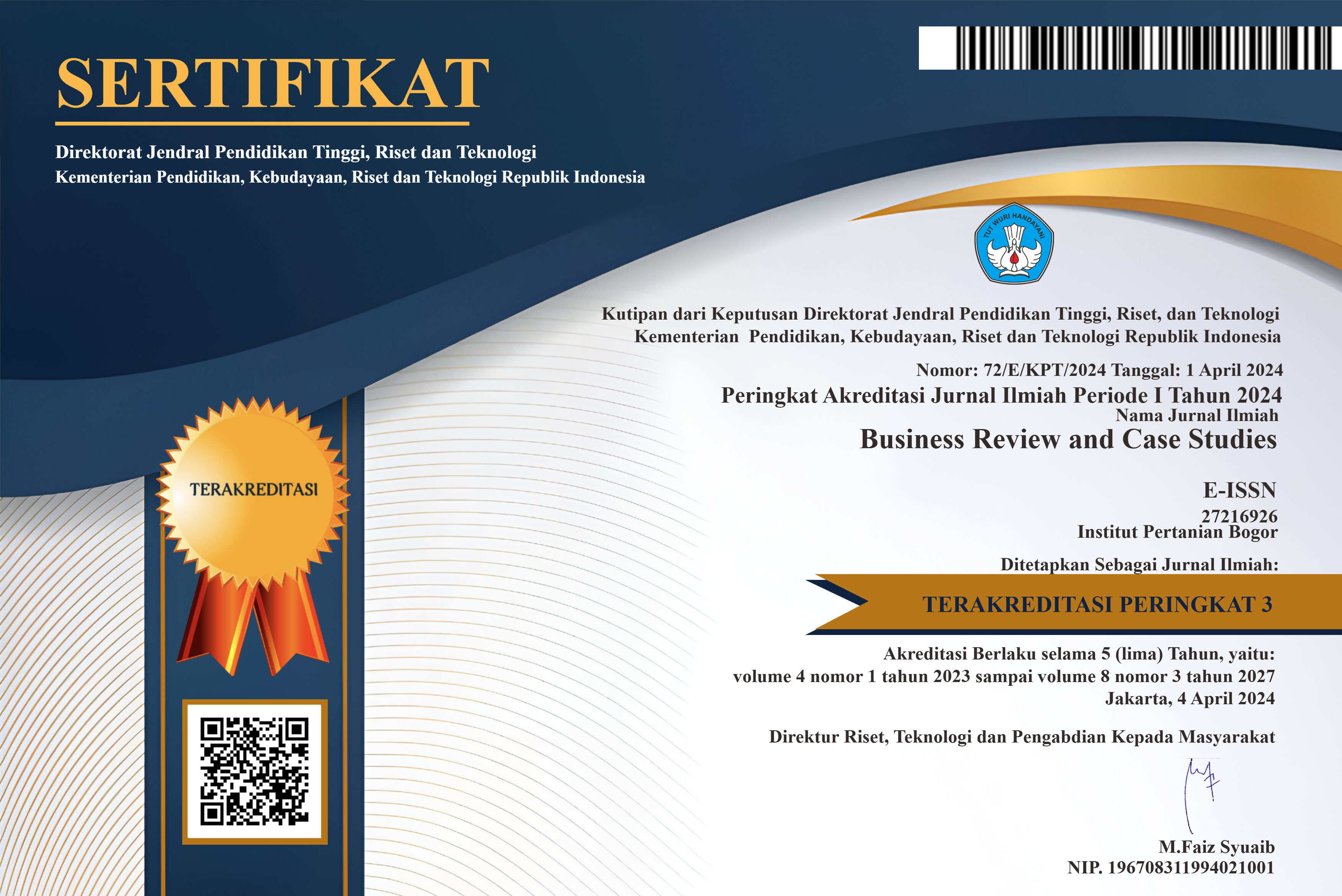The Effect of The Bank Indonesia Development Program on The Development of Agribusiness MSMEs
DOI:
https://doi.org/10.17358/brcs.5.3.363Abstract
Background: Business digitization skills are important for business actors to have, especially in the digital era. Therefore, it is important to improve their skills in building a better economy. The Bank Indonesia development program is one solution to accelerate the digitalization of MSMEs in Indonesia. Previous research on MSME development programs rarely focuses on the agribusiness sector.
Purpose: This research examines how Bank Indonesia's training and mentoring for MSMEs impacts the development of agribusiness MSMEs.
Design/methodology/approach: Data was collected by distributing questionnaires with a total of 50 respondents. Primary data was processed using Structural Equation Modeling-Partial Least Square (SEM-PLS) with the competency variable as an intervening variable.
Findings/Result: The research results show that training and mentoring significantly affect the development of agribusiness MSMEs. Training and mentoring also indirectly affect the development of agribusiness MSMEs through competency as an intervening variable.
Conclusion: agribusiness MSME actors who participate in training and mentoring must have competence in attitudes, knowledge, and skills. Furthermore, the more competent agribusiness MSMEs are, the better the development of agribusiness MSMEs will be, namely increasing income, strengthening competitiveness, and expanding market reach.
Originality/value (State of the art): training and mentoring for Agribusiness MSMEs are factors that influence the development of Agribusiness MSMEs.
Keywords: MSMEs, development programs, agribusiness, training and mentoring, business digitization







.jpg)






